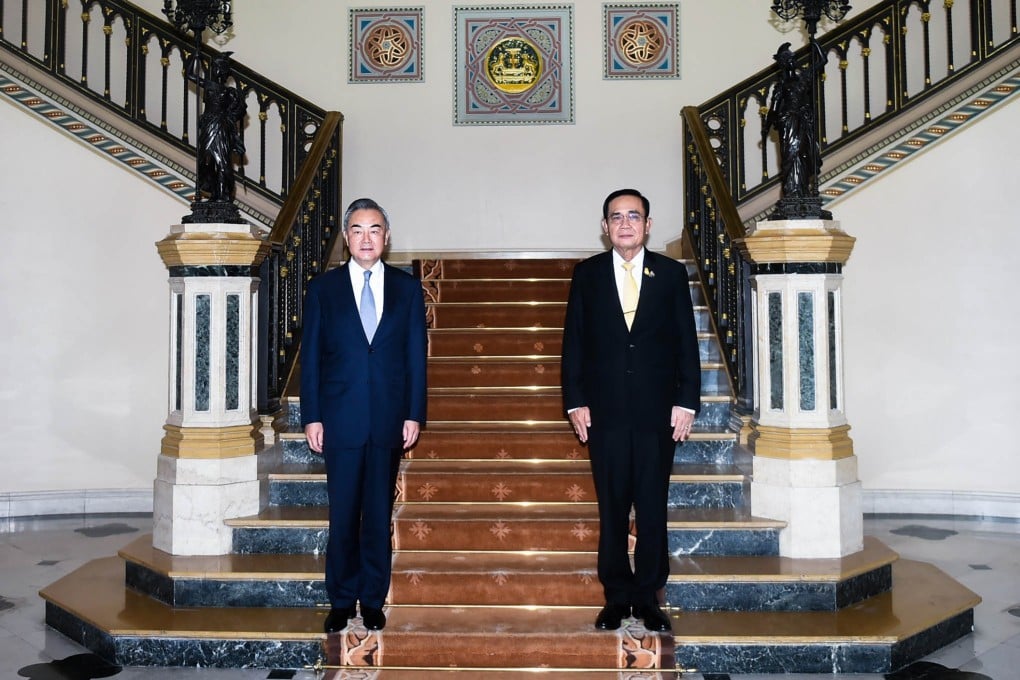Advertisement
As Thailand’s pro-democracy protesters rally, Wang Yi opens China’s arms to Prayuth’s embattled government
- On visit to Bangkok, Wang Yi offers investment and economic support, including integrating the Eastern Economic Corridor with the Belt and Road
- Beijing’s embrace comes at a crisis point for the kingdom, with thousands of pro-democracy protesters defying an emergency order to rally
Reading Time:3 minutes
Why you can trust SCMP

Beijing’s top diplomat Wang Yi has offered support and much needed investment to Thailand’s embattled government of Prayuth Chan-ocha, as the kingdom slides deeper into political crisis and struggles to revive a flatlining economy hammered by the coronavirus.
Foreign Minister Wang Yi, on his last meeting of a whistle-stop tour shoring up alliances in Southeast Asia, on Thursday promised to sell Thailand’s massive Eastern Economic Corridor (EEC) infrastructure, tech and trade zone plan to Chinese companies and make the hub a spinal point in Beijing’s Belt and Road Initiative for the region.

00:42
Chinese foreign minister meets embattled Thai prime minister
Chinese foreign minister meets embattled Thai prime minister
Thailand is desperate for good economic news and is hoping tech from its largest overseas investor – with bilateral trade worth nearly US$80 billion a year – can help upgrade the kingdom from a manufacturing base into a digital hub.
Advertisement
“China will continue to encourage Chinese companies to invest in Thailand and expand cooperation in new economies and new business formats such as the digital economy,” Wang said, according to a report of the meeting in Chinese state media.
He also raised the prospect of plugging the EEC into the Greater Bay Area – Beijing’s ambitious plan to pour cash into tech and infrastructure in Guangdong, Macau and Hong Kong.
Advertisement
The Chinese diplomat also pressed for greater urgency in the construction of the China-Thailand high-speed railway, which it hopes to connect with a nearly finished rail link from Yunnan through Laos, the report shared by Xinhua said.
Advertisement
Select Voice
Choose your listening speed
Get through articles 2x faster
1.25x
250 WPM
Slow
Average
Fast
1.25x